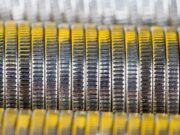Philip Morris International (NYSE: PM) – A Defensive Stock with Real Growth Drivers
Philip Morris International (NYSE: PM) isn’t your typical tobacco play anymore. It’s becoming something much more interesting—a growth story hiding inside a defensive wrapper. And that might explain why billionaire tech investor Philippe Laffont just made it one of his biggest new bets this past quarter, buying over $220 million worth of shares.
At first glance, PM may not look like a high-growth name. But once you dig into the numbers behind its smokeless products—Zyn and Iqos—the story starts to shift. Zyn, its flavored nicotine pouch, is on track to ship 800–840 million cans this year after U.S. shipment volumes surged 53% in Q1. Demand remains strong across multiple demographics, especially among young adults and office workers who prefer a discreet alternative to smoking.
Iqos, the company’s heated tobacco system, is also gaining international traction, with Q1 HTU (heated tobacco unit) volumes up nearly 12% to 37.1 billion units. In-market sales rose 9% in Japan and over 7% in Europe. The product is now being piloted in Austin, Texas, and Philip Morris plans to expand nationally once its new Iluma system gets FDA approval. Importantly, this is all incremental revenue—PM doesn’t sell cigarettes in the U.S., so there’s no cannibalization risk.
What really stands out is the economics behind these products. Zyn delivers six times the product contribution of traditional cigarettes, while Iqos earns 2–2.5x more. That means PM isn’t just selling more—it’s making more per unit sold.
Unlike U.S.-centric tobacco peers struggling with declining cigarette volumes, Philip Morris continues to grow modestly in its international cigarette markets, where smoking remains more socially acceptable. And with Zyn produced in Kentucky (and another facility coming in Colorado), PM also sidesteps many tariff-related supply chain risks.
From a valuation perspective, the stock is still attractively priced—trading at less than 23x forward earnings with a PEG ratio under 0.35. That’s unusually low for a business delivering both stability and growth.
Bottom line: This isn’t just a high-yield defensive stock. It’s a company quietly reinventing itself with profitable, high-demand products in a growing category. Laffont’s buy was no fluke—and we think it’s worth paying attention to.










